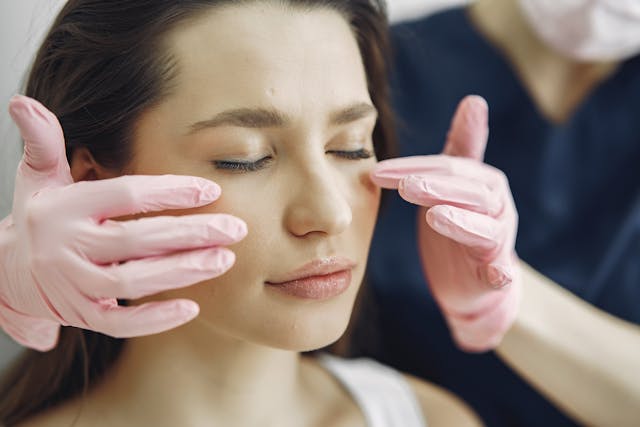Signs and Symptoms: When Should You Consult a Dermatologist?

Are you tired of dealing with stubborn skin issues that just won’t go away? Or perhaps you’re curious about those pesky moles that seem to be multiplying on your body. Whatever the case, it’s time to give your skin the attention it deserves. In this blog post, we’ll explore the signs and symptoms that indicate when it’s crucial to consult a dermatologist. From mysterious rashes and unusual growths to persistent acne and hair loss – we’ve got you covered with expert advice and actionable tips for achieving healthy, radiant skin.
Persistent Acne or Skin Breakouts
Acne is a common skin concern, but persistent or severe breakouts may require professional intervention. If over-the-counter treatments prove ineffective or if your acne is causing discomfort, scarring, or affecting your self-esteem, it’s time to consult a dermatologist. Skin Clinic in Liverpool can assess the underlying causes of acne and recommend personalized treatment plans, which may include prescription medications or advanced skincare techniques.
Unexplained Changes in Moles or Skin Growth
Regularly monitoring moles and any changes in your skin is crucial for early detection of skin cancer. If you notice any sudden changes in the size, color, shape, or texture of moles, or if you observe the development of new growths, it’s imperative to schedule a dermatologist appointment promptly. Skin cancer, when detected early, is highly treatable, making regular dermatological check-ups a proactive measure for skin health.
Persistent Skin Itching, Redness, or Irritation
Chronic itching, redness, or irritation of the skin can be indicative of various skin conditions, including eczema, psoriasis, or dermatitis. Over-the-counter remedies may provide temporary relief, but persistent symptoms warrant professional evaluation. Dermatologists can accurately diagnose the underlying cause of skin irritation and prescribe appropriate treatments to manage or alleviate symptoms.
Hair Loss or Scalp Conditions
Hair loss or unusual changes in hair texture can be distressing and may signify an underlying scalp condition. Dermatologists specialize in diagnosing and treating conditions such as alopecia, dandruff, or psoriasis affecting the scalp. If you experience significant hair loss, notice bald patches, or encounter persistent scalp issues, seeking the expertise of a dermatologist can lead to effective solutions.
Skin Infections or Allergic Reactions
Skin infections, such as bacterial or fungal infections, can manifest as redness, swelling, or oozing lesions. Additionally, allergic reactions to substances like plants, foods, or skincare products may cause rashes or hives. If you suspect a skin infection or experience an allergic reaction, consult a dermatologist for prompt diagnosis and appropriate treatment. Timely intervention can prevent the condition from worsening and help alleviate discomfort.
Persistent Sunburns or Sun Damage
Excessive sun exposure can lead to sunburns and long-term sun damage, increasing the risk of skin cancer and premature aging. If you frequently experience sunburns or notice signs of sun damage, such as dark spots, wrinkles, or changes in skin texture, it’s essential to consult a dermatologist. Dermatologists can provide guidance on sun protection, assess potential skin cancer risks, and recommend skincare regimens to mitigate sun damage.
Chronic Skin Conditions Like Rosacea or Vitiligo
Chronic skin conditions like rosacea, characterized by persistent redness and visible blood vessels, or vitiligo, involving the loss of skin pigmentation, may require ongoing management and expertise. Dermatologists can diagnose these conditions accurately and tailor treatment plans to address symptoms and improve skin health. Seeking professional advice is crucial for managing chronic skin conditions effectively. Knowing when to visit a dermatologist is vital for maintaining optimal skin health. From persistent acne and unexplained changes in moles to chronic skin conditions and sun damage, recognizing signs that warrant professional attention is crucial. Dermatologists possess the expertise to diagnose and treat a wide range of skin concerns, providing personalized care to address specific needs.…
